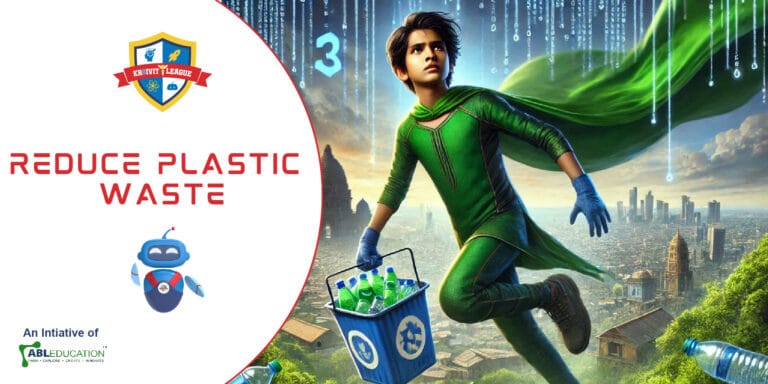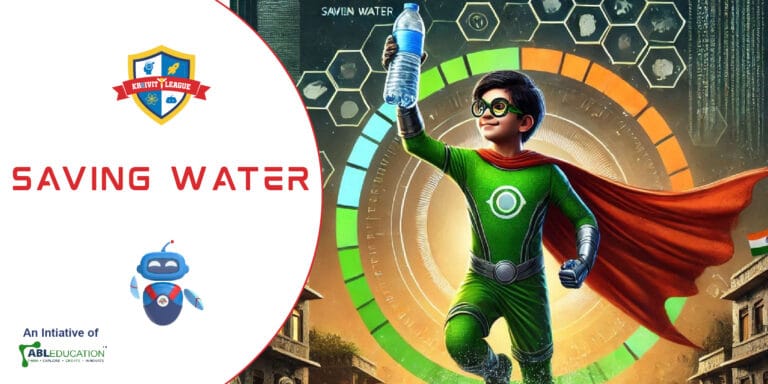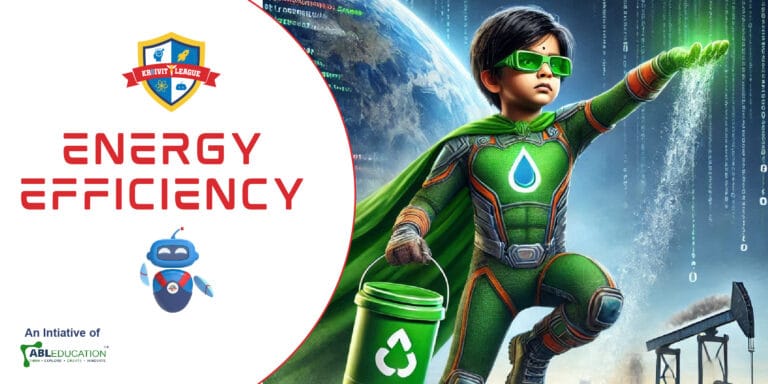Competition Details
The Environmental Innovators competition invites students to step into this world of possibilities and use their problem-solving and critical-thinking skills to create innovative projects that tackle key environmental challenges. Open to students of Grades 4 and 5, this competition encourages participants to think creatively, collaborate effectively, and develop practical solutions that can contribute to a more sustainable future for all. Each team can have a maximum of 3 students, promoting teamwork and shared innovation.
Registration Fee: ₹400 per student (through school) | ₹600 per student (direct participation)
The competition consists of four stages, each with distinct objectives:
Ideation Round: Participants submit their project ideas by the specified date through the provided link.
Mentoring Round (Optional): A paid mentoring session is held during summer vacations for interested participants to refine their projects with expert guidance.
Zonal Round: A virtual round where participants showcase their projects to judges via platforms like Zoom.
Finale: The top 20% teams from each zone advance to compete in the grand finale.
Themes of Competition
1. Reducing Plastic Waste

Problem Statement
Plastic pollution is an escalating crisis impacting oceans, wildlife, and human health. The objective is to design a project that educates individuals on reducing single-use plastics and encourages recycling habits. Using engaging methods such as interactive games or visual campaigns, participants will create innovative solutions to address plastic consumption and waste management effectively.
Objective
To raise awareness about how bad plastic waste is for our environment and inspire actionable change through creative and practical solutions.
Key Features to Address
- Design visually appealing and informative materials.
- Incorporate actionable tips and tracking mechanisms for recycling efforts.
2. Saving Water

Problem Statement
Freshwater scarcity is a growing concern due to wastage and unsustainable usage practices. Participants will create a tool or app that educates users on conserving water, tracks their daily consumption, and provides actionable feedback on sustainable practices.
Objective
To promote water conservation and help individuals adopt sustainable water usage habits through innovative digital solutions.
Key Features to Address
- Real-time water usage tracking and analysis.
- Personalized conservation tips based on user behavior.
- Gamification elements to motivate continued engagement.
3. Energy Efficiency

Problem Statement
Energy overconsumption contributes significantly to climate change. The task is to design an app or game that educates users on energy-saving tips, tracks their progress, and rewards them for adopting energy-efficient practices.
Objective
To increase awareness of energy efficiency and encourage users to make sustainable lifestyle choices through an engaging platform.
Key Features to Address
- Provide clear, practical energy-saving recommendations.
- Integrate reward mechanisms to incentivize sustainable habits.
- Use interactive and intuitive design for better user engagement.
Submit your project using the given button
Grand Prize: To be announced.
Cash Prizes: First runner up – Prizes
Second runner up – Prizes
STEM Scholarship: Full year scholarship for STEM program as per your grade.
Networking Opportunities: Connect with students PAN Indian & mentors globally.
National Recognition: Showcase your innovative idea on a national platform.
Trophies: Winners to capture their memories with trophies
Certificate: Participation certificates for each participant.
Margdarshan (Mentoring) : 5 Oct, 2025
Aankalan (Ideation) : 9 Oct, 2025
Parikshan (Zonal-Virtual Mode) : This round will be conducted virtually. Participants must submit their projects through the website by 16 Nov 2025.
Udaan (Grand Finale) : The Grand Finale will be held in December; the exact date will be announced soon.
This round will be held online, and participants are required to upload their projects on the website by 16th November 2025.
The Grand Finale will be held on 12 December.
Rules and Regulations
- Each team can have a maximum of 3 participants.
- Participants are free to select any one of the three themes provided:
- Reducing Plastic Waste
- Saving Water
- Energy Efficiency
- All submissions must adhere to the specified format and guidelines.
- The project must be original and created specifically for the challenge.
- Participants must ensure their submissions are free of any offensive content.
- Late submissions will not be entertained.
- Students can select any platform to build their projects, but that platform must be based on block-based coding.
Judging Criteria
All submissions will be evaluated based on the following criteria, with a total score of 100 points.
- Innovation and Creativity (25 points)
- Originality of the idea.
- Uniqueness and creative approach to the problem statement.
- Feasibility and Practicality (25 points)
- How realistic and implementable the solution is.
- Potential impact and scalability of the project.
- Presentation and Communication (25 points)
- Clarity and effectiveness in showcasing the idea or project.
- Professionalism in visual and verbal presentation.
- Inculcating STEM and Computational Thinking Skills (25 points)
- Proper integration of tools, technologies, or methods.
- Functionality and user-friendliness of the solution.
Submission Guidelines
To ensure a smooth evaluation process, all participants must follow these guidelines:
- Idea Submission
- Submit your idea by the specified deadline using the link provided above.
- Include a clear description of your project, objectives, and expected outcomes.
- Project Submission
- Projects must be submitted before the Zonal Round.
- Submissions should include:
- A detailed project report (in PDF format).
- Supporting materials, such as diagrams, code, or videos, if applicable.
- Video Presentation
- Prepare a 2–4 minute video explaining your project.
- The video should include:
- Team introduction.
- Explanation of the problem, solution, and project features.
- File Format
- Submit all files in acceptable formats, such as PDF, MP4, or ZIP.
- Ensure the naming convention includes your team name and project title.
- Deadline Adherence
- Late submissions will not be accepted under any circumstances.
